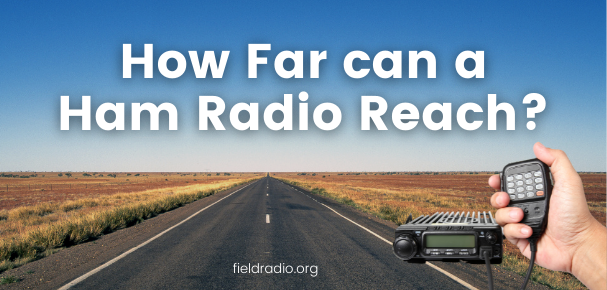Most Hams love tinkering with their technical toys. This is why Linux distros, with their in-built flexibility, are so popular in the Ham radio community.
However, choosing the best Ham radio Linux distro is not an easy task.
You are hit by an overwhelmingly-confusing variety of Linux operating systems as soon as you start looking for a Linux distro for your Ham shack.
Linux distros’ diverse features and an abundance of personal opinions make choosing the right Ham radio Linux distro difficult.
Therefore, I have decided to address this issue once and for all.
The Best Ham Radio Linux Distro
Ubuntu is the most popular choice as the best Ham Radio Linux Distro. Mint and Fedora are popular options amongst the community because of their functionality and rich Amateur radio software packages. And there’s Andy’s Ham Radio Linux Distro, which comes pre-installed with many Ham Radio packages.
In this article, you’ll find an overview of some of the best Ham radio Linux distros. I’ll also shed more light on why Hams choose Linux operating systems. And if you read till the end, there’s a list of tips to help you select the best Ham radio Linux distro for your application.
What is a Linux Distro?
Before I can dive deeper into the details of the best Ham radio Linux distros and how to choose them, let me explain what Linux distros are.
Linux distro is short for Linux distribution, an open-source operating system that comprises of various software programs, often called packages.
Why distro and why not just Linux, you may ask?
Historically, Linux existed as an open-source operating system that had to be compiled from its source code. Each of the packages needed individual integration, which was, as you can imagine, a huge hassle, not to mention an impossible feat for the less technically aligned people.
Linux distros solved this problem.
They come packed with all critical components like installation programs, user programs, tools, and libraries and are ready to boot. In this way, Linux distros eliminated the need for manual compilation and hence the complexity of the original versions.
Many different Linux distros exist, each one with its own functionality.
You can either get a very simple Linux distro, with a minimal number of programs, or a rather dynamic one, with thousands of packages available for installation.
Why a Linux Distro?
Hams and Linux distros share a creative spirit. Linux operating systems, being open-source, allow for tinkering that Hams naturally love and are sometimes called losers because of it.
This is probably why Hams fell in love with Linux very early in its life. And this love has only grown with time.
But personal preference is not the only factor contributing to Linux distro’s popularity in the Ham community.
There are some functional benefits as well.
You can tweak your Linux distro according to your preferences. If you don’t like a feature or can’t find what you were looking for, you can edit the code of the operating system to make it work like you want to.
This is a feat unseen in typical operating systems.
Apart from these upsides, Linux distros are also extremely secure. Some people go as far as saying that “Linux is the most secure operating system“.
Why? Because its source code is publicly accessible. You can see if there are any bugs or backdoors compromising your system’s security and promptly eliminate them.
Linux distros also get more frequent updates. Since they are open-sourced, the community continues to share new code, helping you acquire newer programs more quickly.
Now that you know why Hams prefer Linux distros let’s go into the details of what the best Ham radio Linux distro would be.
The Best Ham Radio Linux Distro
There’s no one-size-fits-all answer for the question “what is the best Ham radio Linux distro?”
A Linux operating that may be best for you may not be so good for someone else.
Therefore, the choice of the right Ham radio Linux distro depends on many factors.
Let me give you an overview of the general opinion and what the majority prefers.
Most of the Hams swear by Ubuntu as the best Ham radio Linux distro. It is so popular among Hams because it is super easy to use and supports many Ham radio applications.
Moreover, Ubuntu categorizes programs by type, so the right applications are easy to look for and install.
And to make things better, it also has a separate library for Amateur radio applications.
The user interface of Ubuntu is also very similar to Windows OS. This makes it preferable to people switching from Microsoft OS to Linux.
If that isn’t enough, Ubuntu is completely free for you to download and install and features good hardware support.
These features make Ubuntu the go-to choice for many Hams, but not the only choice for all Hams.
That’s right.
I came across many Ham radio operators using Linux Mint and claimed that to be the best Ham radio Linux distro.
There were other Amateur radio operators as well using Fedora and swearing by its functionality for Ham radio use.
Apart from these three Linux distros, there’s the popular Andy’s Ham radio Linux distro that is also based on Ubuntu and comes with a lot of Ham radio packages pre-installed.
Despite so many Linux distros, most of the Hams, and even the Amateur Radio Relay League’s website, appear to recommend Ubuntu, for its Ham radio packages, easy availability, and user-friendliness.
Now that you know the general opinion around the best Ham radio Linux distro, let’s help you choose one for yourself.
Choosing the Best Ham Radio Linux Distro
We have established that Ubuntu is a popular choice for Linux distros among Hams. But some people use and love Linux Mint, Fedora, and other operating systems as well.
So what would be the best Linux distro for you?
Read on for some handy tips on selecting the right Ham radio Linux distro for your shack.
Availability of Ham Radio Programs
You need a Linux distro for Ham radio operations. So, naturally, you need an operating system that offers better access to Amateur radio applications.
Ubuntu and Fedora are two Linux distros that are said to have a full set of Amateur radio tools in their default repositories.
Research their pros and cons as well as other Linux distros and select what fits you best.
Is It Resource Intensive?
Generally, all Linux distros are lightweight, but some are more resource-intensive than others.
So, choosing the best Ham radio Linux distro would depend on your machine’s available resources. If your computer can’t run a heavy operating system, settle for lightweight options like Ubuntu, Linux Mint, etc.
What Are Your Uses?
What you use your computer for will also influence your decision about choosing the right Linux distro.
Of course, you need an operating system for Ham radio operations, but will you use your computer solely for Ham radio, or will you need it for other purposes as well?
Think about this and then look for the right Linux distro accordingly.
How Technically-Inclined Are You?
All Linux distros have somewhat of a learning curve. But some of them, like Ubuntu, are more user-friendly than others. Therefore, if you are not a programming guru or just can’t be bothered with the complexities of less user-friendly operating systems, go for the easy ones.
Final Word
Choosing the best Ham radio Linux distro depends on many factors, including personal preferences and operational requirements.
However, Ubuntu is the operating system that enjoys significant popularity in the Ham circle.
But you will have to consider your unique situation and technical expertise before you can select the right Linux operating system for your Ham shack.

I have been passionate about the world of communications in its various forms for most of my life. Ever since I first found an old ham radio stashed away in my uncle’s attic, I have had a fascination with this classic technology.
Having the ability to communicate with people without the need to rely on telephone lines or networks is an empowering feeling which I believe everyone should have at least a basic knowledge of. Becuase who knows when you might need it?
I setup fieldradio.org with this passion in mind, to help inform people about the amazing possibilities of amateur radio and I’m on a quest to help educate as many budding operators as possible.
I hope you enjoy our content. Come and say hi, via our contact form


